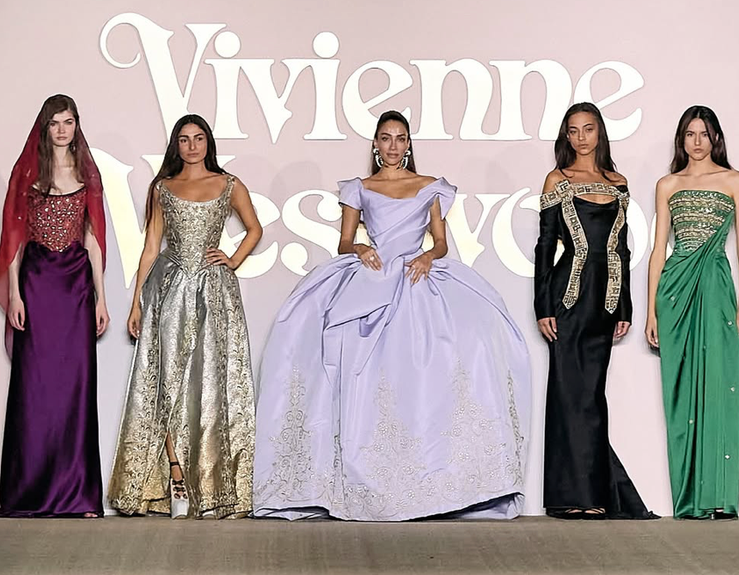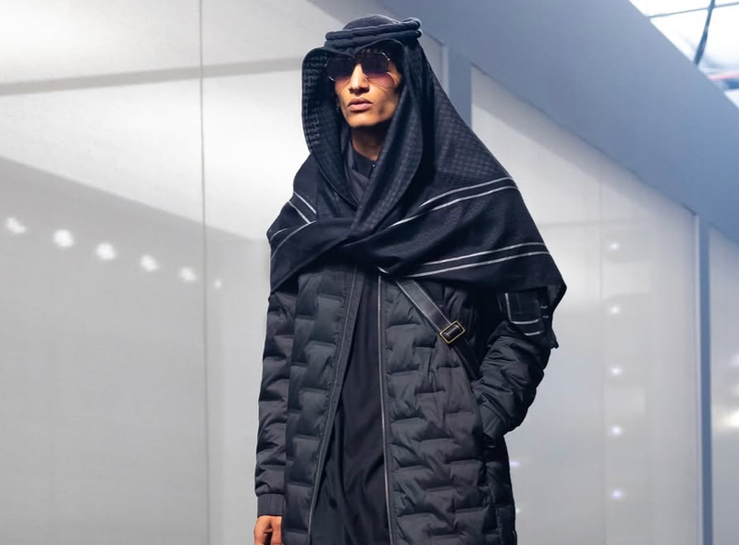The Scene
Beneath the sandstone cliffs of Diriyah, on a runway at the UNESCO World Heritage site, models strutted couture from Vivienne Westwood and Stella McCartney, giving the recent Riyadh Fashion Week global cache. Now in its third edition, the event is aiming to be considered in the same tier as those held in Milan or Paris, but its bigger impact has so far been in showcasing homegrown designers who are reshaping what it means to dress like a Saudi.
In this article:
Manal’s view
Saudi Arabia is investing in fashion. The kingdom is launching a new university for the arts and an $80 million fashion fund to invest in designers. Riyadh Fashion Week in particular — from Oct. 16 to Oct. 21 — is largely driven by the government, part of the kingdom’s Vision 2030 efforts to diversify the economy: It aims to reduce reliance on imports and promote Saudi designers on the global stage.
To that end, Vivienne Westwood’s debut show in the region was a capsule collection produced in collaboration with Art of Heritage, a local cultural preservation body, and crafted by Saudi artisans, fusing her signature corsetry and punk essence with traditional weaving and embroidery techniques to form a literal meeting of rebellion and tradition.

But the buzz among attendees was the reimagination of donning a thobe. The standout, to me, was Mihyar. Once the place your uncle buys his thobe, its latest collection is a revolution: Sharp cuts, heavier fabrics, modern tailoring coupled with puffer coats and vests. The thobe is no longer preserving culture, but evolving it, in a way that mirrors the moment Saudi is witnessing.
Designers are leading the change. They turned the thobe, the shimagh (men’s headwear) — which was always red, now made blue and gray — and the abaya into canvases for something new. That’s why this fashion week felt authentic, a reimagination of what’s already ours: Also featured were local designers, such as Saudi icon Hindamme, whose Hejaz-inspired “Bride of the Sea” collection celebrated Jeddah’s Red Sea heritage, and Leem, which aimed to redefine modern “modesty” with their signature relaxed tailoring and muted tones.
Sure, there were flashes of streetwear embroidered with palm trees. But the major collections were looking inward, building on a rich heritage with confidence and pride that hasn’t been the norm in Saudi for generations.
Room for Disagreement
Not everyone sees Saudi Arabia’s embrace of global fashion houses as benign cultural exchange. Ephrat Livni wrote in The New York Times that the decision to open Riyadh Fashion Week with Vivienne Westwood (a brand rooted in punk rebellion) was “a curious choice” in a conservative kingdom where provocative dress is still penalized. She noted that critics argue that hosting international labels helps whitewash Saudi Arabia’s human rights abuses.
Notable
- Saudi Arabia’s fashion market is forecast to hit $32 billion by 2025, up almost 50% since 2021, with global houses like Dior and Valentino betting on the market, according to the Saudi Fashion Commission.


